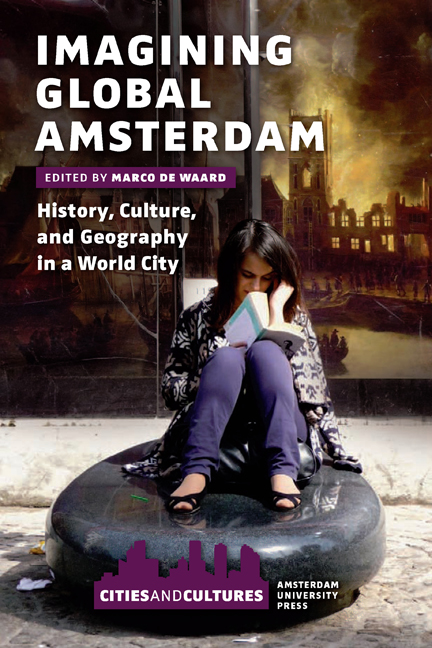3 - Amidst Unscrupulous Neighbours: Amsterdam Money and Foreign Interests in Dutch Patriotic Imagery
Published online by Cambridge University Press: 19 January 2021
Summary
Any discourse articulating the idea that other countries may profit from the content of Dutch purses is bound to affect the Dutch: that much became clear in June 2005, when in a national consultative referendum a majority of Dutch citizens voted against the treaty that meant to establish a constitution for Europe. When Dutch media tried to explain the nationwide rejection afterwards, among the factors they highlighted were the economic arguments that had been deployed against a constitution – and against the European project more generally – in national public debates during the previous months. Campaigners for a no-vote had booked success, the analysis went, by propagating the idea that due to a serious undervaluation of the old Dutch currency, the gulden, the Netherlands had been fleeced at the introduction of the euro. Moreover, as the largest net per capita contributor to the European Union, the Netherlands had allowed other member states to live at its expense. Lastly, because of the increasing economic integration of the Union, immigrants and companies from Eastern Europe were on the brink of ousting the Dutch from their own internal labour market, or so the charge went. Spurred by this analysis of the referendum's outcome – whether accurate or not – Dutch prime minister Jan Peter Balkenende refused to endorse the longterm budget plans of the European Union on attending a top-level meeting in Brussels a few weeks later: the bottom line was that ‘Europe’ was too expensive for the Dutch tax payer. Together with Great Britain, which also refused to give the budget plans its consent, the Netherlands arguably caused the first political crisis about the European budget and European finances since the introduction of the euro as physical currency on 1 January 2002 (Giebels 2005; Halsema and Buitenweg 2005; van Praag 2005).
Today we know that while this may have been the first serious crisis the European Union faced in the twenty-first century, it would not be the last. Obviously, reluctance to support other countries financially is not an exclusively Dutch phenomenon, nor should it be assumed that distrust of international cooperation expresses itself through economic protectionism alone.
- Type
- Chapter
- Information
- Imagining Global AmsterdamHistory, Culture, and Geography in a World City, pp. 45 - 66Publisher: Amsterdam University PressPrint publication year: 2012

